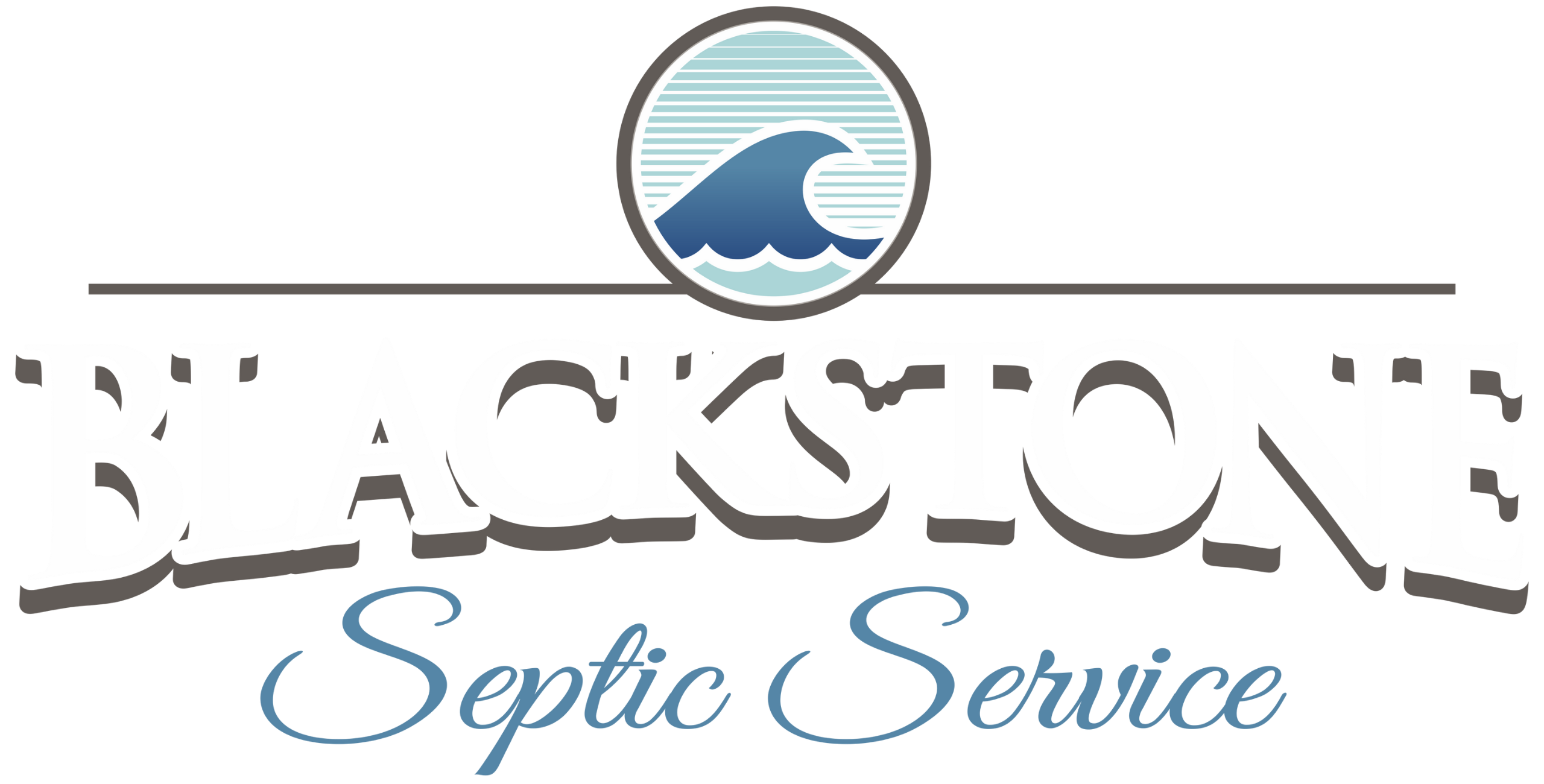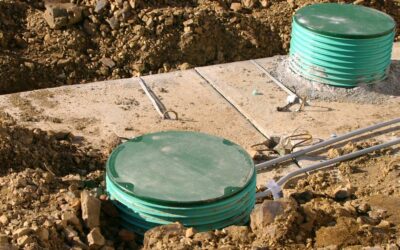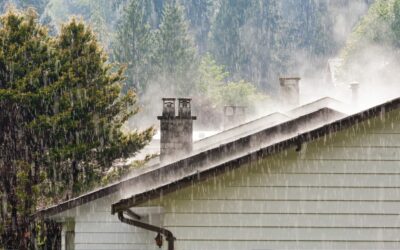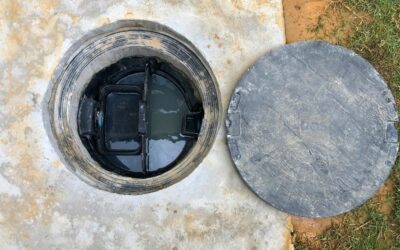Septic systems are essential for treating and disposing of household wastewater in areas not served by municipal sewer systems. Typically, these systems include a septic tank for solid waste separation and a leach field for further liquid effluent treatment.
However, environmental concerns, space limitations, or specific soil conditions might not allow for installing a traditional leach field. In such cases, homeowners might wonder about their options and the feasibility of septic systems without leach fields.
Can You Have a Septic Tank Without a Leach Field in Massachusetts?
Yes, you can have a septic tank without a leach field in Massachusetts, but it’s important to note that such septic systems are not typical and may require special approval or permits. Conventional septic systems include a septic tank with a leaching field, but it is also possible to have innovative/alternative (I/A) systems. These alternative systems might not necessarily include a traditional leach field but could still effectively treat wastewater.
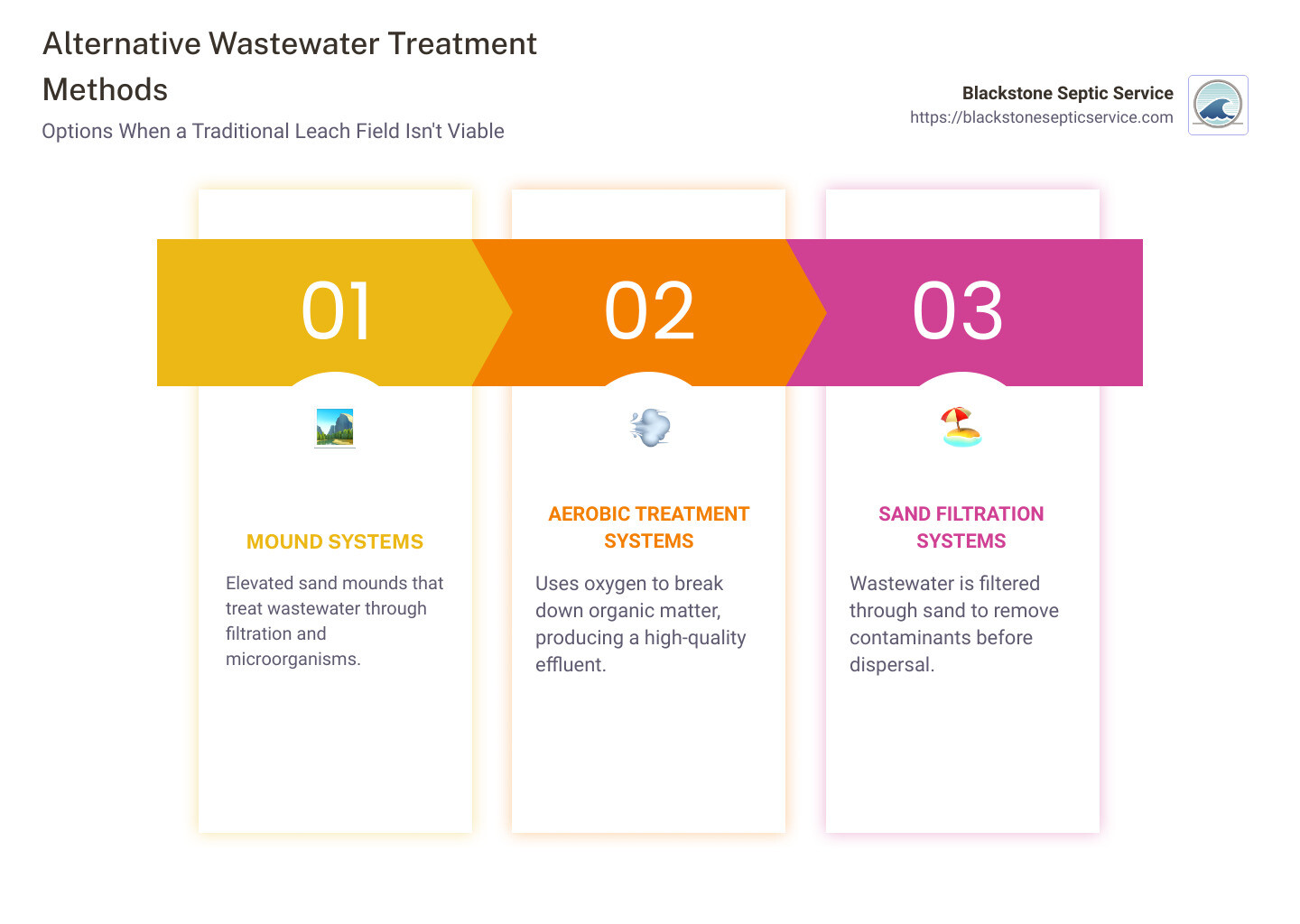
Table of Contents
Understanding Septic Systems and Leach Fields
Poorly treated wastewater can contaminate groundwater, affecting both human health and wildlife. Therefore, exploring suitable alternatives to traditional septic systems, especially in environmentally sensitive areas or unsuitable areas for leach fields, is a significant step toward environmental protection.
Septic Tank Basics
Think of a septic tank as a big underground box that holds all the waste water from your house—like from your toilet, shower, and kitchen sink. When the waste water goes into this box, it starts to separate. The heavy stuff (called sludge) sinks to the bottom, and the lighter stuff (like oils and grease, called scum) floats to the top. The water in the middle is pretty clean compared to the rest. This process is natural; it’s just what happens when waste water sits still.
Leach Field Function
Now, we need to do something with the relatively clean water in the middle. That’s where the leach field, or drainfield, comes in. The water flows out of the septic tank and into a series of buried pipes in the leach field. As this water slowly seeps out of the pipes and into the ground, the soil acts like a filter. It cleans the water even more by removing bacteria and viruses.
Wastewater Filtration
This step is super important. By the time the water moves through the soil in the leach field, it’s clean enough to join the groundwater without harming the surrounding environment. This natural filtration is key to making sure we’re not polluting our own drinking water or nearby rivers and lakes.
In places where a leach field isn’t possible—like where there’s not enough space, the soil isn’t right, or the water table is too high—there are alternative systems. These include mound systems, aerobic treatment systems, and sand filtration systems. Each of these alternatives has its own way of cleaning the waste water so it can be safely returned to the environment.
To sum up, septic systems and leach fields work together to manage and clean waste water from your home. While it’s possible to have a septic system without a leach field, it’s not the easiest route. Alternative systems can do the job, but they often come with higher costs and more maintenance.
Why Leach Fields Are Typically Necessary
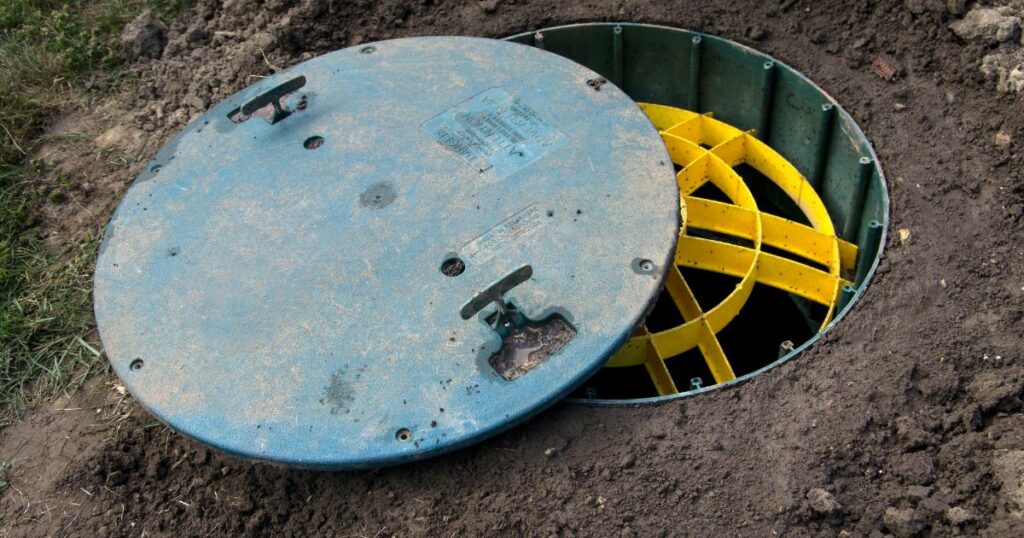
When we talk about managing wastewater in homes not connected to municipal sewers, leach fields play a star role. But why are they so important? Let’s break it down into three key areas: soil filtration, environmental protection, and state regulations.
Soil Filtration
Imagine pouring a glass of water through a filter. The filter catches the impurities, and clean water comes out the other side. This is similar to what happens in a leach field. The wastewater from your septic tank flows into the leach field, where the soil acts as a natural filter. As the water moves through the layers of soil, harmful bacteria and viruses are removed. This process protects your groundwater from contamination.
Environmental Protection
Our environment is a delicate balance. Wastewater, if not properly treated, can harm local ecosystems, wildlife, and even our health. Leach fields ensure that only clean, treated water seeps into the ground. This protects nearby rivers, lakes, and streams from pollution. Remember the story of older septic systems that discharged untreated wastewater directly into nearby waterways? We’ve learned from the past, and today’s leach fields are a critical component in preserving our natural resources.
State Regulations
Laws and regulations aren’t just red tape; they’re in place to keep us safe. Many states and local municipalities have strict codes governing septic systems, including the requirement for a leach field. These regulations ensure that every septic system operates efficiently and safely, minimizing the risk to public health and the environment. Failing to comply can lead to hefty fines and serious legal issues.
In the next section, we’ll explore what happens when a leach field isn’t viable and the alternative systems that can be used in such scenarios.
Circumstances Where a Leach Field May Not Be Viable
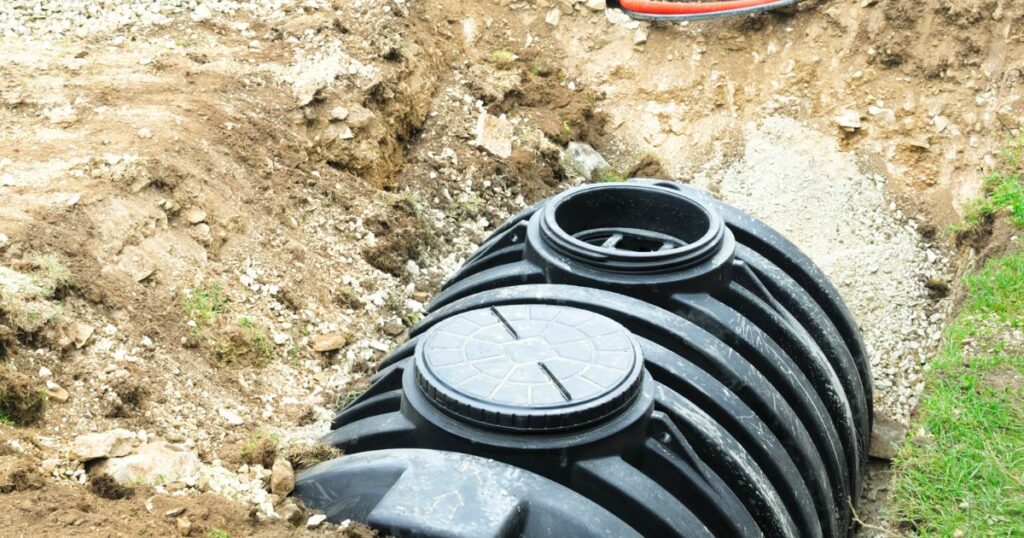
When considering a new septic system for your home, you might encounter situations where a traditional leach field just isn’t possible. Let’s dive into these scenarios:
Failed Perc Test
A percolation (perc) test measures how quickly water drains through the soil. If the soil absorbs water too slowly or too fast, it fails the percolation test. This means the soil can’t properly filter when wastewater flows through a leach field. Without this natural filtration, there’s a risk of pollution and system failure.
Older Septic Systems
Some properties, especially those over a century old, may have outdated septic systems that were designed without modern environmental considerations. These older systems might release wastewater directly into waterways, posing a risk of contamination. Upgrading to a current system or finding an alternative septic system is often necessary.
Lack of Space
Properties with limited space may not have enough room for a traditional leach field. Building codes require a certain distance between a leach field, the property, and water sources to prevent groundwater contamination. Small lots may not meet these requirements, making a conventional system unfeasible.
Shallow Water Table
If the water table—the upper level of groundwater—is too close to the surface, installing a leach field could lead to sewage seeping into the groundwater. This can contaminate drinking water and harm the environment. Properties with shallow water tables need alternative solutions to manage wastewater.
Water Sensitivity
Areas near bodies of water or those with delicate ecosystems are particularly sensitive to pollution. Local regulations might restrict the installation of leach fields to protect these environments. In such cases, alternative septic systems that minimize environmental impact are necessary.
In each of these scenarios, homeowners must consider alternative septic systems. These alternatives include mound systems, aerobic treatment systems, sand filtration systems, and evapotranspiration systems. Each option has its benefits and drawbacks, but they all provide viable solutions when a traditional leach field isn’t possible.
Alternative Septic Systems for Homes Without Leach Fields
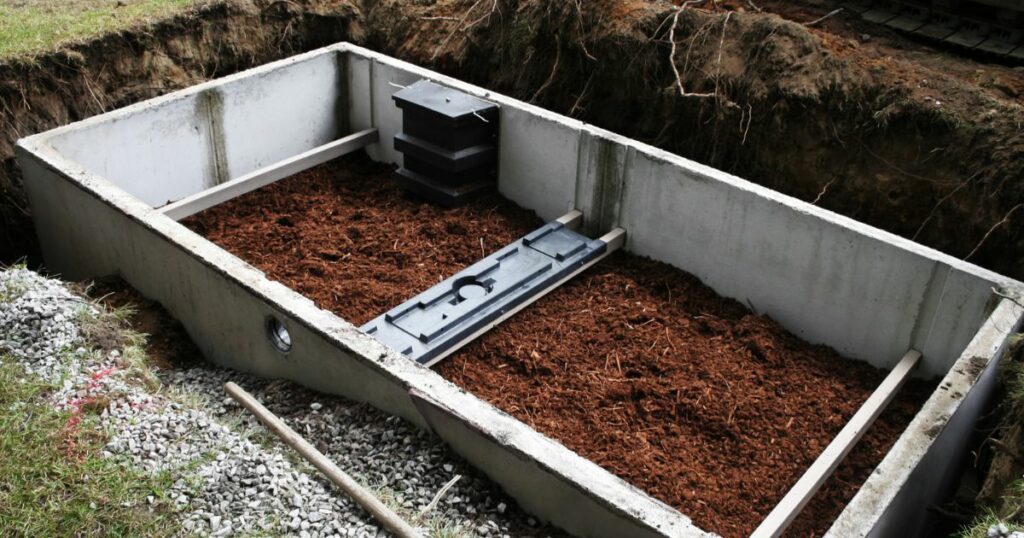
When a traditional leach field isn’t an option, whether due to soil conditions, space limitations, or environmental concerns, there are several alternative septic systems that can be used. These systems are designed to treat and disperse wastewater in ways that accommodate specific site challenges. Let’s dive into some of these alternatives:
Mound Systems
What They Are: Mound systems are raised septic systems where effluent is pumped to a mound made of specific sand materials, allowing for additional treatment through filtration before it disperses into the surrounding soil.
Why Consider Them: They’re ideal for shallow soil depths, high groundwater, or rocky ground where traditional systems fail. The mound’s sand filter system provides an extra layer of treatment, making it a good choice for sensitive environmental areas.
Aerobic Treatment Systems
What They Are: These systems introduce oxygen into the wastewater, encouraging the growth of aerobic bacteria. These bacteria break down the waste more efficiently than the anaerobic bacteria found in traditional septic tanks.
Why Consider Them: Perfect for small lot sizes or areas where the soil absorption field is limited. They can treat wastewater to a higher standard, allowing for safer discharge into the environment.
Sand Filtration Systems
What They Are: This system filters effluent through a sand barrier before it’s either recirculated for further treatment tank cleaning or discharged.
Why Consider Them: Sand filtration is great for areas with poor soil conditions or high groundwater. It’s a passive system, requiring little energy, and provides an excellent level of wastewater treatment.
Evapotranspiration Systems
What They Are: These systems rely on evaporation and transpiration natural bacteria to dispose of effluent. A waterproof liner prevents the wastewater from entering the groundwater, dense soil and plants help evaporate the water.
Why Consider Them: Best suited for arid regions where evaporation rates are high. They’re environmentally friendly, as they reuse wastewater for plant growth, but they require a significant amount of land.
Legal and Environmental Considerations
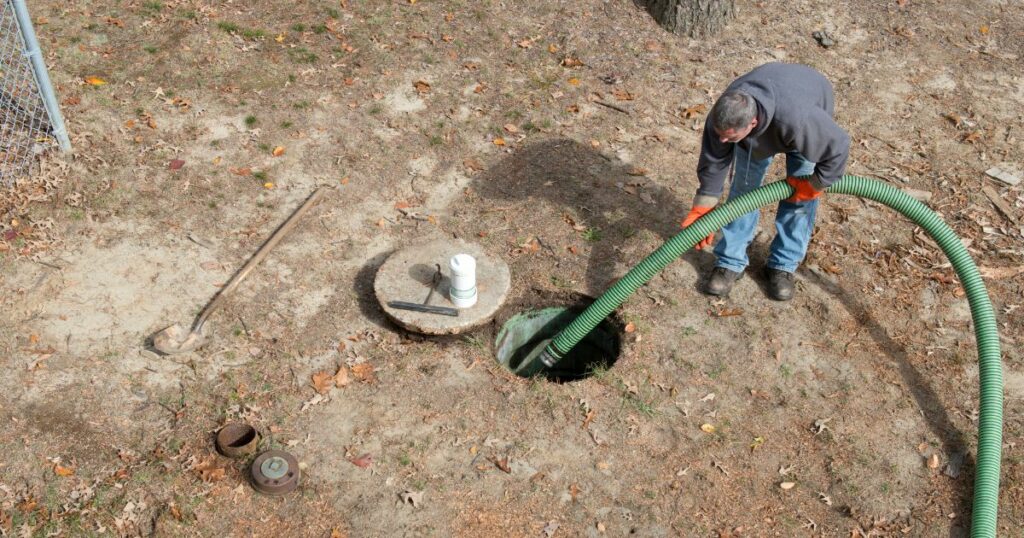
When exploring options for septic systems without leach fields, it’s crucial to navigate the complex landscape of permits and regulations. Each state, and often each local municipality, has its own set of rules governing the installation and maintenance of septic systems.
Environmental impact is another significant concern. Traditional septic systems, with leach fields, naturally filter and treat wastewater before it reenters the groundwater system. Without this process, there’s a risk of contaminating local water sources. This is not just a theoretical risk; improper disposal of wastewater can lead to real environmental crises, affecting local ecosystems, wildlife, and even human health.
Speaking of health risks, the importance of properly treated wastewater cannot be overstressed. In some regions, like parts of Massachusetts, regulations are particularly stringent to protect sensitive ecosystems, especially in coastal areas. These areas might have additional requirements or restrictions to prevent nutrient runoff and protect water quality.
Permits are not just bureaucratic red tape; they are a crucial step in ensuring that your septic system does not harm both the environment or public health. Obtaining a permit typically involves submitting detailed plans for your system, which may need to include evidence of soil suitability, system design, and proximity to water sources. This process ensures that all septic systems, even those without traditional leach fields, meet minimum standards for safety and effectiveness.
Conclusion
Navigating septic systems without leach fields can seem daunting. However, with our guidance, you can rest assured that you’re making informed decisions that benefit not just your household but the environment as well. Whether it’s mound systems, aerobic treatment systems, sand filtration, or evapotranspiration systems, we’re here to ensure that the installation and maintenance process is seamless and stress-free.
For homeowners facing the challenge of managing a septic system without a traditional leach field, or for anyone seeking expert advice on alternative septic solutions, we’re here to help. Explore our grease trap cleaning service and discover how we can assist you in ensuring the health and efficiency of your septic system.
Contact us today at Blackstone Septic Service, we’re deeply committed to ensuring that every homeowner has access to the most efficient, environmentally friendly septic solutions available. We understand the challenges and concerns that come with managing a septic system, especially when traditional leach fields are not an option. Our expertise and experience equip us to guide you through selecting the best alternative septic systems that align with both your needs and environmental regulations.
Frequently Asked Questions about Septic Systems Without Leach Fields
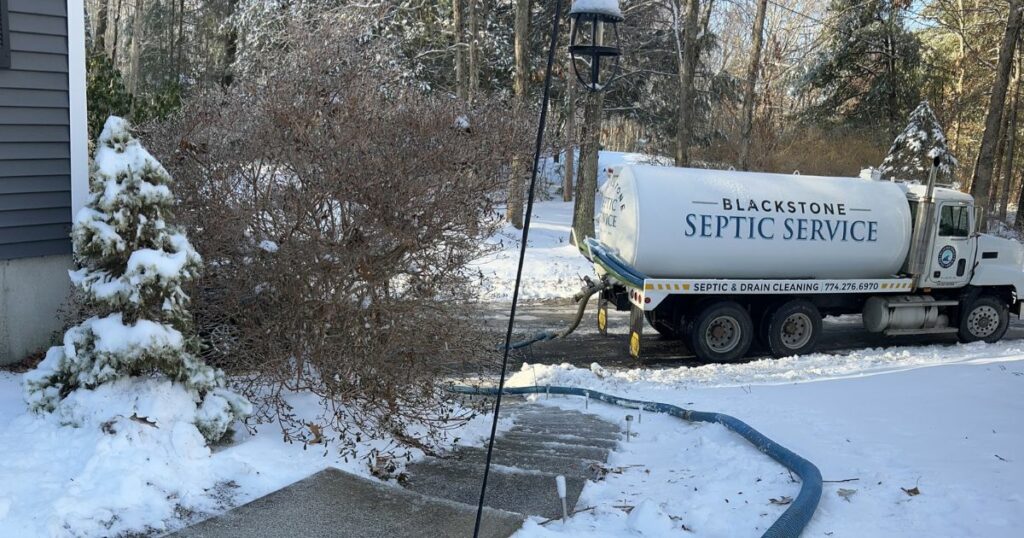
When thinking about septic systems, one question often comes up: Can you have a septic tank without a leach field? Let’s dive into this and other common questions.
What are the alternatives to a traditional leach field?
Several alternatives can take the place of a traditional leach field:
- Mound Systems: These involve pumping wastewater to a man-made mound of sand and gravel. The mound has a specific design to filter wastewater as it moves downward.
- Aerobic Treatment Systems (ATS): ATS uses oxygen to break down organic matter much more efficiently than traditional septic systems. The treated water is then disinfected and can be used for irrigation in some cases.
- Sand Filter Systems: These systems pump effluent through a sand filter before it’s dispersed to the ground or further treatment areas. They’re suitable for properties with high water tables or insufficient soil.
- Evapotranspiration Systems: These are designed for dry climates, where the effluent is evaporated and transpired through plants, with no groundwater discharge.
Each of these systems has its pros and cons, including cost, maintenance requirements, and suitability for different environmental conditions.
How often would a septic tank without a leach field need to be pumped?
The need for pumping varies based on the system type, household size, and usage. However, regular inspections and maintenance are crucial for all types of septic systems to ensure their longevity and efficiency. An Aerobic treatment system, for instance, may require more frequent checks due to their mechanical components.
Moving forward, delve into the legal and environmental considerations of these alternative systems, ensuring your choice not only fits your property’s needs but also aligns with regulatory requirements and environmental stewardship.
Our Content
Our experienced septic tank specialists have carefully reviewed and edited all of the content to ensure that it meets our high standards for quality and accuracy. At Blackstone Septic Service, our mission is to provide excellent septic services. With a dedicated team of professionals committed to delivering top-tier solutions, we specialize in septic tank system services encompassing everything from Massachusetts septic tank pumping, drain field, and installations for septic tanks.
Customer satisfaction is at the core of our operations, and we pride ourselves on our prompt, reliable, full-service provider and customer-centric approach. Blackstone Septic Service is a family-owned company with highly trained technicians, with over 75 years of experience in septic tanks.
